Get the weekly SPARTANAT newsletter.
Your bonus: the free E-Book from SPARTANAT.
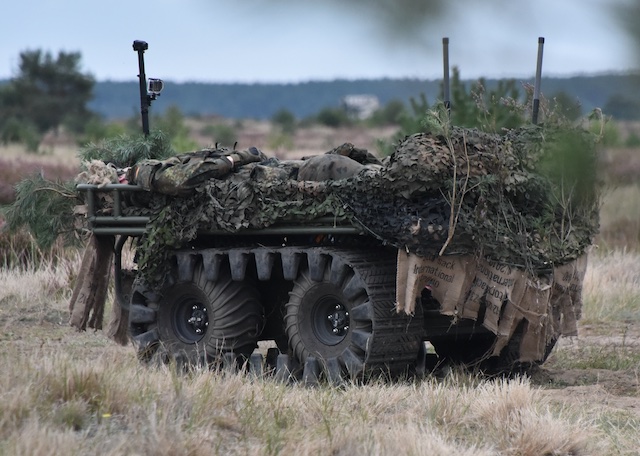
"Ground drones" are becoming increasingly popular. The Bundeswehr conducted a field test of unmanned ground vehicles - or UGVs - as part of the F&T study "Unmanned Ground Vehicles to Support Dismounted Forces." The project was led by the Army Development Office in collaboration with the Fraunhofer Institute FKIE. Sebastian Bauer was involved with ELBIT SYSTEMS DEUTSCHLAND and the Probot. We wanted to know from him: What can UGVs do? What is their perspective for deployment?"
SPARTANAT: Mr. Bauer, after the field test of the UGVs by the Bundeswehr: how did the Probot perform?
First, it must be noted that all participating UGVs were very different in their class in terms of weight and payload capacity. The Probot is capable of both carrying heavy loads and operating independently in the field. It is large enough to support an infantry unit and can carry up to 750 kg (1,200 kg in the larger version). This allows it to take 75 kg per person of load off a ten-person infantry group - or it can transport additional weapons, ammunition, and supplies to increase the group's survivability. The Probot is small enough to operate in central European forests. It combines the necessary payload capacity with its compact dimensions and becomes an effective companion for the infantry. Other UGVs do not achieve this necessary balance.
The greatest strength of the Probot - and here one can clearly see the technological advantage of Elbit Systems over its competitors - is the degree of autonomy it has already achieved. The Probot already has complex algorithms for Man-Unmanned Teaming (MUM-T). These algorithms enable safe following of a soldier on roads, in the field, and even in the forest. Special attention has been paid to the safety of the soldiers. The Probot autonomously recognizes its surroundings and has been trained to differentiate between humans and the environment, programmed to ensure the safety of our soldiers. Furthermore, the Probot is able to autonomously navigate on and off roads and reach predefined waypoints. During this navigation, the Probot constantly interacts with its environment and chooses the fastest and safest route.
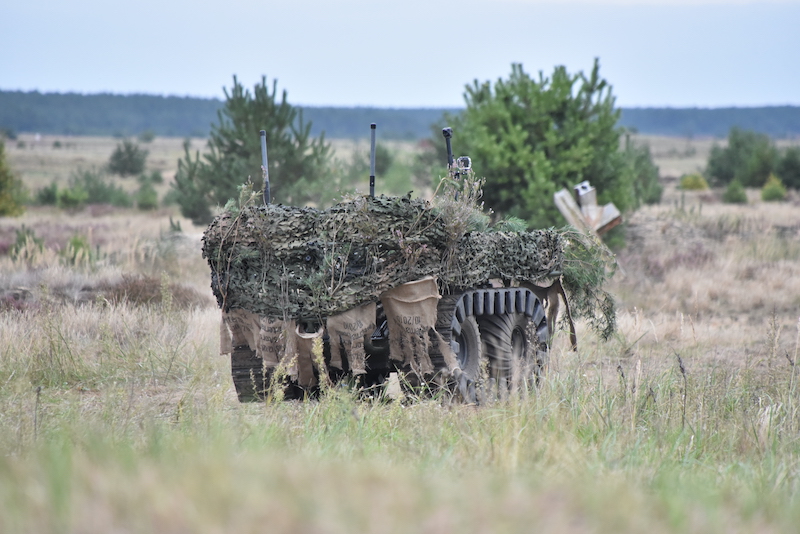
Finally, it should be noted that the investigation conducted by the Army Development Office did not push any of the participating systems to their performance limits. Rather, I think the goal was to generate interest in the topic within the Bundeswehr, as the topic of UGVs and automation has been treated hesitantly until now.
SPARTANAT: What is the perspective of UGVs for the troops? A remote-controlled mule or more?
UGVs can perform various tasks. Starting from a simple cargo carrying system to an automated weapon carrier. As far as I know, the Cargomule project focuses on supporting infantry as a cargo carrier. It is intended to transport heavy supplies and weapon systems on the Cargomule while autonomously following the infantry group. In the event of a soldier's injury, the Cargomule must be quickly converted into a CASEVAC. Elbit's Probot already meets all these requirements today.
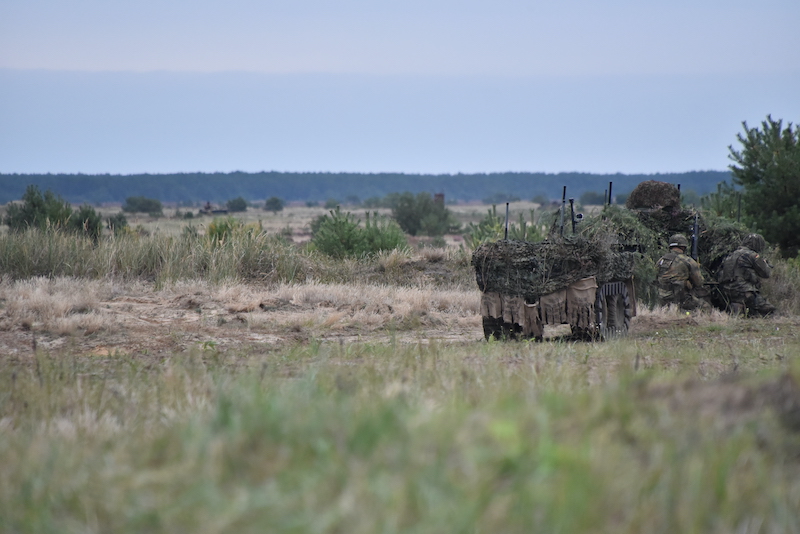
There are also considerations to equip the UGV with a remotely controlled weapon station and provide fire support to the deployed infantry unit in a combat scenario. The advantage here is the immediate availability of the weapon system and the ability to carry much heavier weapon systems than a dismounted infantry group would otherwise carry. For example, an infantry unit rarely carries a grenade machine gun, as the weight of the weapon and ammunition can quickly add up to 100 kg.
SPARTANAT: We are also seeing more UGVs with weapon stations. Autonomous helper or full-fledged combat device?
The advantage of Elbit's Probot is its modularity. This allows the user to operate flexibly, save weight during strategic deployment, and of course save costs. As described earlier, the Cargomule sees the UGV as a pure cargo carrier. The Probot is already available in various versions and with different modules.
The basic version is the cargo system, which can be configured as needed. For example, a reconnaissance module has powerful reconnaissance optronics and can also launch micro-UAS to improve its reconnaissance capability and monitor larger areas. A fire support module can perform the activities mentioned above.
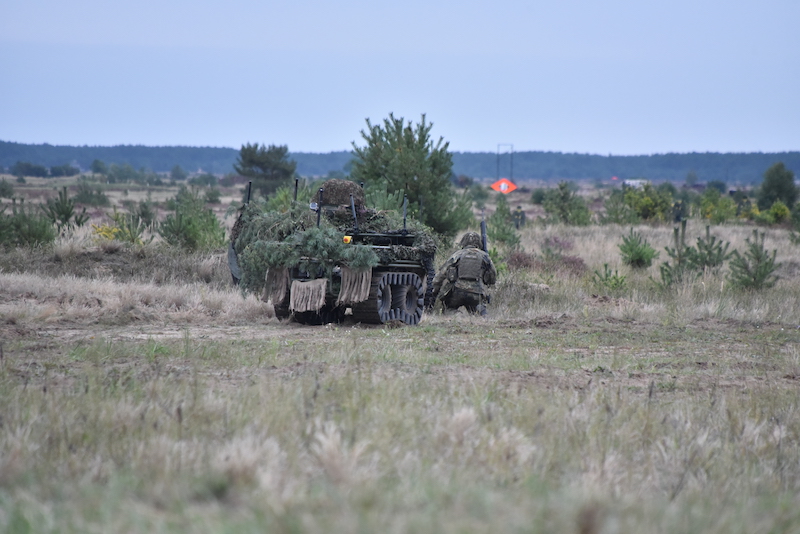
SPARTANAT: Even if you look at the products of the competition: What development trends could be briefly summarized?
I think the development tends to go in two directions.
To begin with, the operational duration of the systems must be increased. The Probot, in its Enhanced Version, can operate proudly for 24 hours solely on its internal batteries, making it a very powerful system. This operational duration could be further extended through intelligent energy management, for example, by using fuel cells. The development in this area faces similar challenges to the automotive industry.
On the other hand, the development of automation is an important topic. As mentioned earlier, Man-Unmanned Teaming (MUM-T) plays a crucial role here, such as autonomous following, on and off-road navigation, and finally, the independent execution of operations or operation segments.
ELBIT SYSTEMS has specifically developed the Torch XTM RAS control and operation software for this purpose. With Torch XTM RAS, complex tasks and operations with one or more unmanned systems can be effectively planned, controlled, and coordinated. The autonomy even allows the performance of complex tasks, such as reconnaissance operations or close-range surveillance for a field camp with dozens of unmanned systems, over a duration of several days, completely autonomously. This effective MUM-T enables a single operator to control and evaluate a variety of systems.
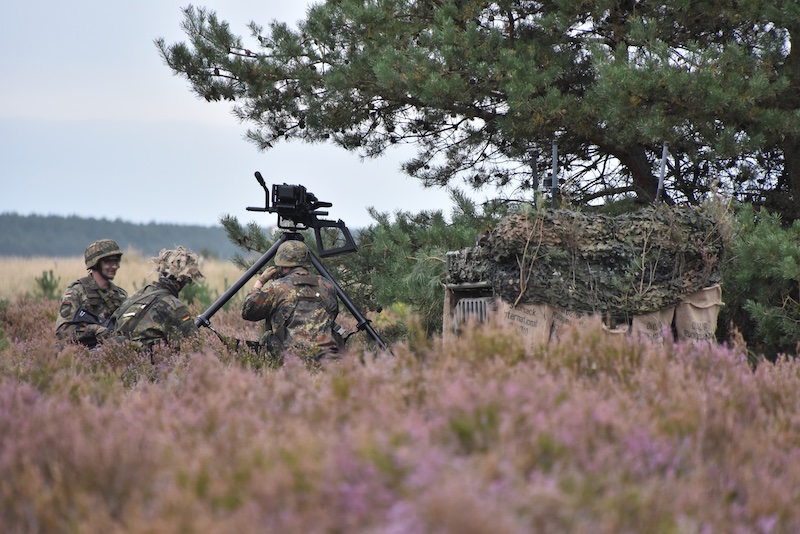
SEBASTIAN BAUER was on-site for the Bundeswehr field test. He himself was with the paratroopers and has been at ELBIT SYSTEMS DEUTSCHLAND for several years, responsible for UGVs among other things.
ELBIT SYSTEMS DEUTSCHLAND online
More UGVs on SPARTANAT:
– THE UGVS ARE COMING. ROBOTICS ON THE BATTLEFIELD
– PROBOT: FLEXIBLE WITH THE INFANTRY
SPARTANAT is the online magazine for Military News, Tactical Life, Gear & Reviews.
Send us your news: [email protected]
Ad
similar
Get the weekly SPARTANAT newsletter.
Your bonus: the free E-Book from SPARTANAT.


